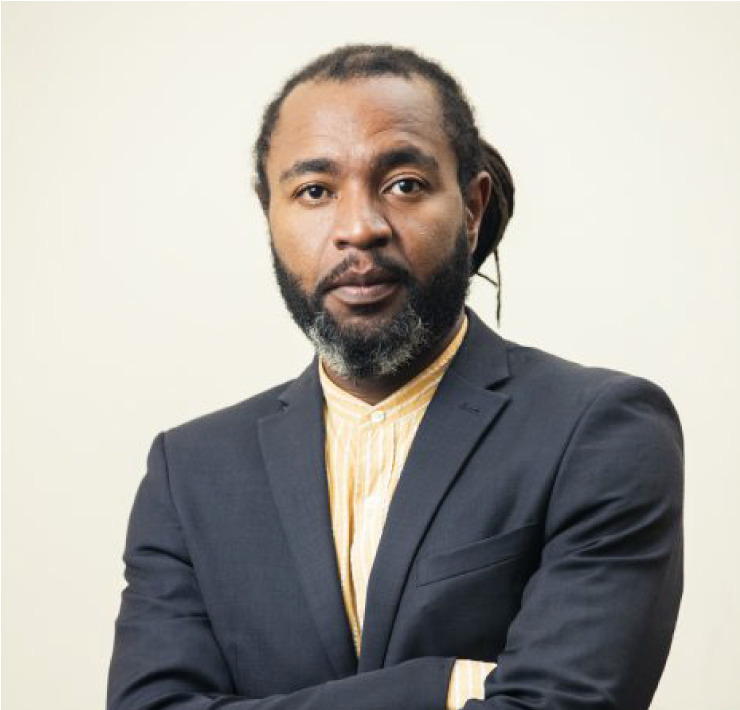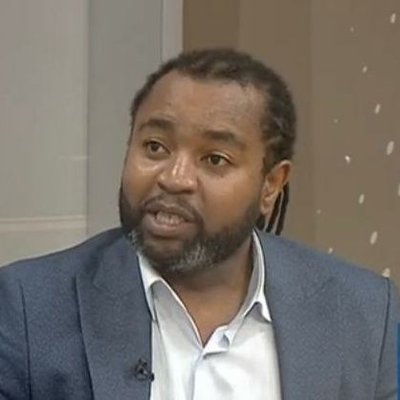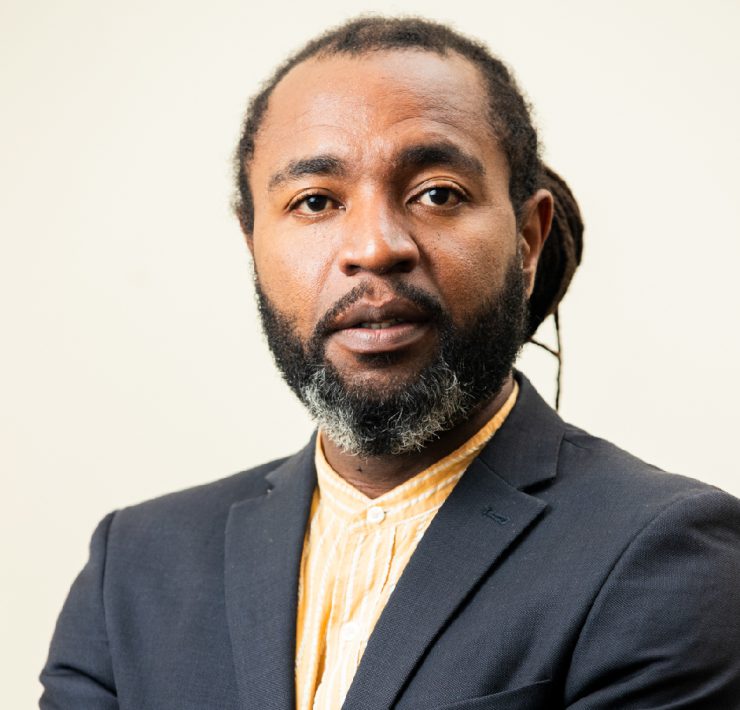Football or soccer is a strange sport. Put two teams of eleven each and a ball on a pitch, get a few people to watch them as they kick the ball around with the intention of winning by scoring more goals than their opponents, and voila! – you have yourself a social experiment. The twenty two are the ‘participants’ while the audience are the ‘respondents’. As the recently concluded Qatari football World Cup (WC) tournament showed, there is a lot more that is conjured by the game, than how well the twenty two are playing on the playing field. Beyond talking about the players’ sizes, (if it mattered there would be no Pele, Maradona, or Messi) skills, and hairstyles, the Qatari tournament, as expected and as happens during each edition, disturbed everything including the GOAT’s kraal.
Even before the first whistle was blown on 20 November 2022, the tournament was already receiving high flying, studs showing, career ending tackles, from all manner of players. Prominent were the British and Americans who threw tantrums after not winning rights to host this and the previous edition held four years ago in Russia. They and other nations accused Qatar of using underhand tactics, including bribery to secure the hosting rights. This led to the arrest and charging of FIFA’s top officials, including Sepp Blatter, its former president. He and Michel Platini, his co-accused, were eventually cleared of corruption by a Swiss court on 8 July 2022.
Prior to that, Qatar, a nation of about 3 million people, which ordinarily uses migrant labour was accused by human rights organisations like Amnesty International of abusing foreign labourers’ rights, leading to the death of some. This happened during the construction of stadia and infrastructure for the event. The Qatari government and organisers responded by changing employment and labour practices towards foreign workers.
Accusations went on until the eve of the championship when the host’s stances and policies on LGBTQ people and community were put in question. Like in many countries, African especially, LGBTQ relationships are illegal and criminally punishable in Qatar. FIFA, nations, teams, tournament ambassadors like the former English football maestro David Beckham, were accused of looking away and bending LGBTQ’s people’s rights by supporting the tournament and money.
Like everyone predicted, attention was shifted on to the pitch after the first whistle of the tournament was blown. This however eventually led to further criticism of the host country because it became the first nation in the tournament’s history to lose a tournament’s opening match. This was logwood for those stocking the fires of Qatar’s ineligibility of hosting the tournament because as the results on the pitch showed, Qatar was not a ‘footballing nation’.
Of other firsts, the competition took place during the months of November and December and not June and July as per tradition which follows a Eurocentric weather and football timetable. It was the first to be hosted by an Arab and predominantly Muslim country, saw the first female referee, Stephanie Frappart from France officiate a WC game on 1 December 2022, and for the first African nation to almost belatedly animate Pele’s, the ‘enthroned’ king of football prophecy, that an African country would be champions by 2000, when Morocco reached the semi-finals of the competition.
Ironically, Morocco’s success elicited more debate than celebrations amongst Africans. In Kenyan homes, offices, taxis, markets, and social media platforms, the following questions featured more than the outcome of the games – Is Morocco an African nation? Are Moroccans Africans or Arabs? Who are Africans?
In as much as this discussions are alive and common within the African continent where the Confederation of African Football (CAF) governs the game, and Northern African teams dominate African tournaments such as the AFCON – the Africa Cup of Nations, and club championships, where North African nations and clubs dominate (Wydad AC from Morocco are current champions), Sofaine Boufal’s, the Morrocan striker’s dedication of Morocco’s success to Arabs did not go down well with most Africans, writ large those from the south of the Sahara. Although he later apologised to ‘Africans’, he had inadvertently confirmed what many Africans and other people thought and felt – that Northern African people and nations are not ‘pure’ Africans but in Africa through historical accident. France, a team from Europe, received more support from sub-Saharan Africans than Morocco or Tunisia, the other team from North Africa.
Africans who support France say they do so because the French team has many players of African origin. This is evidently true but if this be the case, why don’t other countries with similar team countenances like Ecuador, USA, The Netherlands, and England receive similar love considering that French players of African extraction, have complained of racism within the team, game, and country generally? The French star, Kylian Mbappe once stated that he considered stopping to play for the national team because as he was quoted on Sports Illustrated in June this year, “I cannot play for people who think I’m a monkey. I’m not gonna play.”
It does not help that France, which colonised much of West Africa, is incessantly accused of neo-colonialism. On 31 July 2022, Mali, a former colony, accused France of using neo-colonial policies in the country and region through its military presence and economic practices. In February 2022, thousands poured on the streets of Bamako, Mali to celebrate the expulsion of the French ambassador from the country. France was also asked to remove its troops from the country. Despite these accusations, many Kenyans and Africans still supported France because of its ‘Africanness’.
These and other cultural issues like the ban of the consumption of alcohol, which is considered haram in Qatar, a Muslim nation, generated talking points beyond the game itself. At the end of what turned to be arguably one of the best tournaments, where giants like Argentina, the eventual winners fell to Saudi Arabia, Tunisia beat France, and Cameroun vanquished Brazil – the Samba Boys, this game and tournament has once again facilitated the world to reflect and ventilate about many social, cultural, economic, and political issues facing the world.
This beautiful game of twenty two players and a ball, and an audience of billions has for the duration of the tournament’s sixty four matches of football binging, provided opportunity for people, communities, and nations ‘fight out’ their issues in a the true sense which John Dingell, the former US Congressman meant when he said that “war is a failure of diplomacy”.
Football and the World Cup helps us to ventilate and improve as it did for Qatar and labour practices and FIFA with corruption. As for France and other teams that feature players of African extraction but rife with racism, the VAR jury is still out there. For those like me who love Lionel Messi and Kenyans especially during this season, Messi delivered a few days to Christmas – enjoy your Christmas GOAT!
Author
-

Bobby Mkangi served as a Commissioner in the nine-member Committee of Experts for Constitutional Review (CoE) in Kenya that delivered the Constitution of Kenya, 2010 (CoK-2010). In that process Mkangi convened and chaired the human rights, and civic education and public engagement sub-committees of the CoE. Thereafter, Mkangi worked on various transitional justice constitution-making processes in Tanzania, Zimbabwe, Sierra Leone, South Sudan and The Gambia. In 2012, Mkangi spoke at Tokyo’s Toyo University on Constitutions as Platforms of Change in Africa: The Kenyan Case, and is concluding a semi-autobiographical book, provisionally entitled It Was Written: Personal Reflections on Constitution Making Process in Kenya. A children rights advocate, Mkangi participated in an Experts’ Meeting convened by the Special Representative of the UN Secretary General on Violence against Children and the Office of the UN Commissioner on Human Rights (OCHR) on Legal Framework for the Prohibition, Elimination and Response to Violence against Children in Geneva, Switzerland in 2012. On the same issue, Mkangi has finalised two manuscripts provisionally titled The Legal Framework for Child Protection in Kenya and The Anatomy of Child Sexual Abuse: Kenya’s Silent Monster. Mkangi is affiliated to the African Network for Constitutional Lawyers (ANCL) and serve in various boards including the National Democratic Institute (NDI)/Kenya Board (Secretary), the Kampala based Eastern Africa Centre for Constitutional Development (Kituo Cha Katiba -KcK) in which he chairs the board, and Moyo Children’s Centre (MCC) where he sits as Chairperson. Mkangi previously served in the board of the African Network for Prevention and Protection Against Child Abuse and Neglect (ANPPCAN) – Kenya Chapter as Treasurer. In 2010, Mkangi was awarded the Member of the Order of the Burning Spear (MBS) by the President of The Republic of Kenya for exemplary service during Kenya’s constitution-making process. In similar context, Mkangi was awarded the Shujaa Wetu (our hero) Award by the National Council For Community Based Organisations. In 2004, he was awarded Honorary Membership (2004-2006) by the International Society for the Protection against Child Abuse and Neglect (ISPCAN). Mkangi works as an independent legal consultant, and lives in Nairobi, Kenya.
Bobby Mkangi served as a Commissioner in the nine-member Committee of Experts for Constitutional Review (CoE) in Kenya that delivered the Constitution of Kenya, 2010 (CoK-2010). In that process Mkangi convened and chaired the human rights, and civic education and public engagement sub-committees of the CoE. Thereafter, Mkangi worked on various transitional justice constitution-making processes in Tanzania, Zimbabwe, Sierra Leone, South Sudan and The Gambia. In 2012, Mkangi spoke at Tokyo’s Toyo University on Constitutions as Platforms of Change in Africa: The Kenyan Case, and is concluding a semi-autobiographical book, provisionally entitled It Was Written: Personal Reflections on Constitution Making Process in Kenya. A children rights advocate, Mkangi participated in an Experts’ Meeting convened by the Special Representative of the UN Secretary General on Violence against Children and the Office of the UN Commissioner on Human Rights (OCHR) on Legal Framework for the Prohibition, Elimination and Response to Violence against Children in Geneva, Switzerland in 2012. On the same issue, Mkangi has finalised two manuscripts provisionally titled The Legal Framework for Child Protection in Kenya and The Anatomy of Child Sexual Abuse: Kenya’s Silent Monster. Mkangi is affiliated to the African Network for Constitutional Lawyers (ANCL) and serve in various boards including the National Democratic Institute (NDI)/Kenya Board (Secretary), the Kampala based Eastern Africa Centre for Constitutional Development (Kituo Cha Katiba -KcK) in which he chairs the board, and Moyo Children’s Centre (MCC) where he sits as Chairperson. Mkangi previously served in the board of the African Network for Prevention and Protection Against Child Abuse and Neglect (ANPPCAN) – Kenya Chapter as Treasurer. In 2010, Mkangi was awarded the Member of the Order of the Burning Spear (MBS) by the President of The Republic of Kenya for exemplary service during Kenya’s constitution-making process. In similar context, Mkangi was awarded the Shujaa Wetu (our hero) Award by the National Council For Community Based Organisations. In 2004, he was awarded Honorary Membership (2004-2006) by the International Society for the Protection against Child Abuse and Neglect (ISPCAN). Mkangi works as an independent legal consultant, and lives in Nairobi, Kenya.



